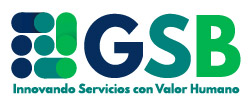 We live in very complex times of uncertainty, fear, physical, economic, social and emotional risk. Each of us is responding to the crisis in different ways that have been changing. Some of us have gone through stages of denial, anger, bargaining, depression, sadness, nostalgia. These are the stages of grief, because we have certainly lost security, freedom, being with family and friends, among other things. And looking at it differently, they are not losses, they are changes.
We live in very complex times of uncertainty, fear, physical, economic, social and emotional risk. Each of us is responding to the crisis in different ways that have been changing. Some of us have gone through stages of denial, anger, bargaining, depression, sadness, nostalgia. These are the stages of grief, because we have certainly lost security, freedom, being with family and friends, among other things. And looking at it differently, they are not losses, they are changes.
Specialists affirm that when we reach the acceptance stage, we will experience the change from a better perspective. We are agile, and our principles include frequent and close inspection of reality, in order to adapt quickly to it, and to adjust our response to the changing needs of the moment.
Implementing ideas and proposals to help teams continue to deliver value to the organization on a recurring and iterative basis in the current circumstances is a challenge. But this is a collective crisis, and there are many people working on innovative solutions to provide us with tools that allow us, both personally and in the workplace, to move forward.
This crisis gives us the opportunity to strengthen our ways of working remotely, our implementation of agile frameworks, and to actively and empathetically connect with our teams, supporting the colleague we identify as most in need.
And for you, what have been the first lessons learned from this crisis?
María Esther Remedios
@soy.agile.coach




